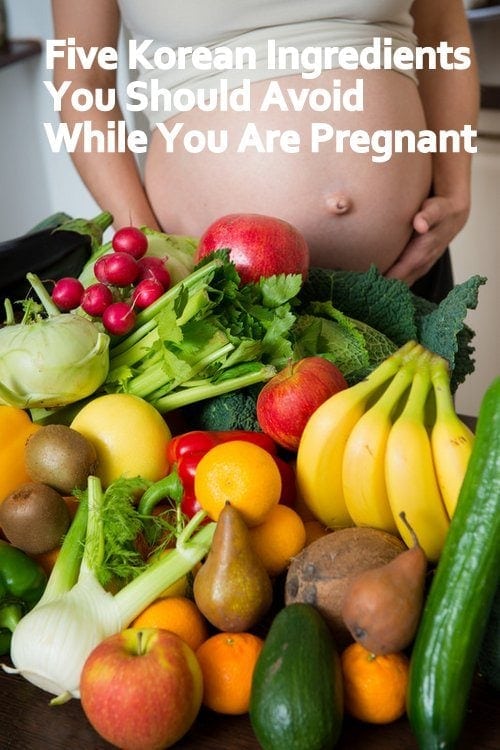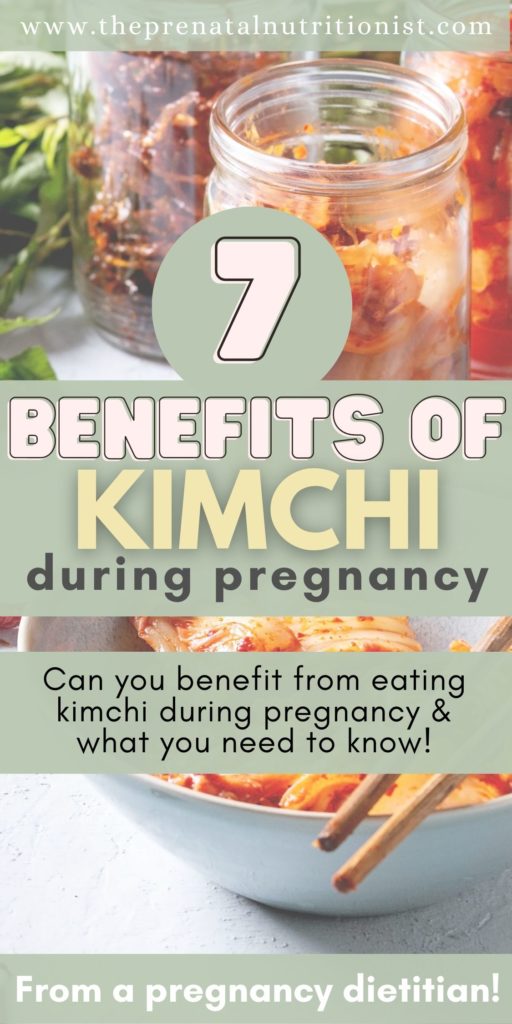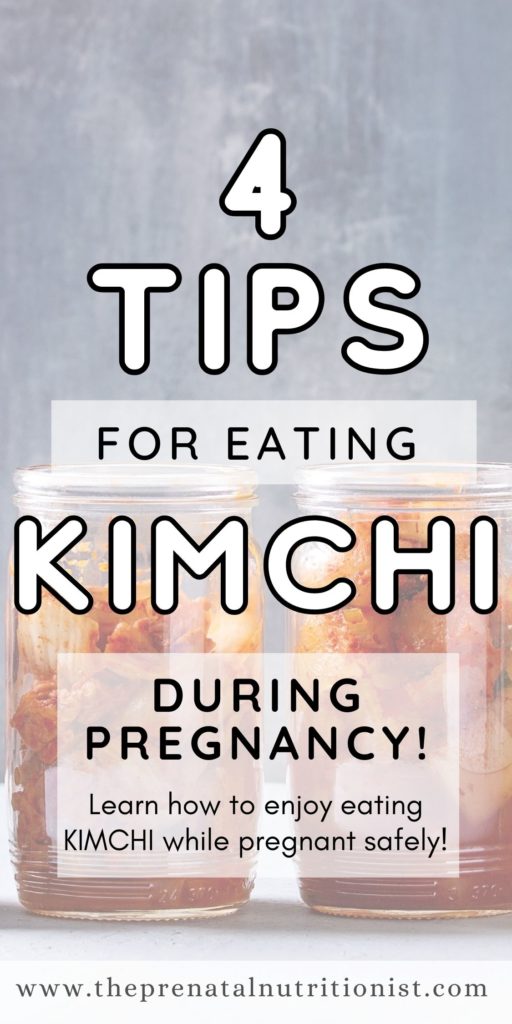Kimchi & Pregnancy: Safe Or Risky? What To Know!
Can a craving for the vibrant, spicy kick of kimchi be safely satisfied during the delicate period of pregnancy? The good news is, yes, for most expectant mothers, kimchi can be a delicious and potentially beneficial addition to their diet, provided certain precautions are taken.
The allure of kimchi, a cornerstone of Korean cuisine, is undeniable. This fermented dish, typically crafted from cabbage, radishes, and a blend of flavorful spices, offers a complex tapestry of tastes and textures. But beyond its culinary appeal, kimchi boasts a nutritional profile that is attracting attention in the realm of prenatal health. It is, however, important for any expectant mother to tread carefully when deciding what is safe during pregnancy.
Before diving in, let's quickly recap the key elements of the discussion. Kimchi, a traditional Korean dish, is made by fermenting vegetables, mainly cabbage. The fermentation process creates probiotics and other beneficial nutrients. During pregnancy, the safety of eating kimchi depends on factors like preparation, storage, and moderation. The main points to consider are whether the kimchi is pasteurized, the freshness of the ingredients, and if it contains any unsafe ingredients like raw fish.
The main ingredient, cabbage, is packed with vitamins and minerals, while the fermentation process itself yields probiotics, beneficial bacteria that promote gut health. These probiotics can be particularly advantageous during pregnancy, potentially aiding digestion, boosting immunity, and even easing constipation, a common complaint during the gestation period. These potential benefits make the consideration of kimchi intake during pregnancy an important one.
Here's a general overview of the considerations:
- Pasteurization: Opting for pasteurized kimchi is often recommended, as this process eliminates harmful bacteria that can pose risks during pregnancy.
- Freshness: Freshly prepared kimchi, when prepared properly, is generally safer than kimchi that has been stored for long periods.
- Ingredients: Ensure that the kimchi does not contain any raw fish or shellfish, which can be unsafe during pregnancy.
- Moderation: Like many foods, consuming kimchi in moderation is key to enjoying its benefits without risking potential digestive upset.
The decision of whether or not to incorporate kimchi into a pregnancy diet is a personal one. However, by understanding the benefits, risks, and safety guidelines, expectant mothers can make an informed choice. The article will provide a detailed analysis of the risks and benefits of eating kimchi while pregnant, helping you make an informed decision.
For those drawn to the vibrant flavors of Korean food, the question of indulging in kimchi during pregnancy is especially pertinent. For someone who is part korean and 12 weeks pregnant and craving Korean food, the question is very relevant and this article will help answer it.
But before embracing this culinary delight, it is essential to understand the nuances. Like other fermented foods, kimchi presents both potential boons and pitfalls. The fermentation process that gives kimchi its distinctive tang also creates the possibility of contamination with harmful bacteria. The answer is yes, it is safe to eat kimchi with some safety precautions.
Consuming kimchi during pregnancy can help improve digestion, boost immunity, and prevent constipation. Kimchi is a traditional korean dish made of fermented cabbage and other vegetables that are rich in vitamins and probiotics. The general consensus is that kimchi is a safe dish to eat during pregnancy, but there are always some factors you need to consider before consuming this delicious side dish. It's important to be sure the kimchi has been properly fermented, is fresh, does not contain any raw fish or shellfish, and is either pasteurized or heated thoroughly before consumption during pregnancy. Pasteurized kimchi is generally considered safe as the process eliminates harmful bacteria, while unpasteurized kimchi could pose a risk of exposure to pathogens like e.
When prepared and stored properly, kimchi is safe during pregnancy. While kimchi is considered safe to eat during pregnancy, its important to eat it in moderation. Eating too much kimchi can lead to heartburn, diarrhea, and flatulence. When incorporating kimchi into a pregnancy diet, moderation and food safety should guide a woman's choices. The fermentation process actually produces probiotics, which are beneficial for gut health and overall immunity.
Kimchi, a popular Korean fermented dish, is known for its distinctive taste and health benefits. This article explores the safety, nutritional value, and potential risks of eating kimchi while pregnant. This article provides a detailed analysis of the risks and benefits of eating kimchi while pregnant, helping you make an informed decision. So if you want to eat this spicy dish during pregnancy, you should consult with your doctor before consuming it.
The fermentation process can sometimes lead to the growth of harmful bacteria, such as listeria or e. coli, which can pose serious health risks, especially during pregnancy. Though no official medical publication recommends you avoid kimchi while pregnant, it can be risky at times. Firstly, you should pay attention to how it is prepared and stored.
Experts' opinions on pregnant women eating kimchi are divided. While some believe that the dish can be a healthy addition to a pregnant womans diet, others caution against it. Moderate kimchi consumption from a reliable source during pregnancy is considered safe for most women. But check with your doctor about specific concerns or risks in your individual circumstances.
Having a healthy gut microbiome is important during pregnancy. Eating fermented foods before you get pregnant sets the groundwork for making sure baby gets the best bacteria right from the start. Eating fermented foods, such as fermented soy bean, yoghurt, pickles and miso, during pregnancy is common in many asian countries, such as japan.
| Category | Details |
|---|---|
| Name | Kimchi |
| Type | Korean Fermented Dish |
| Main Ingredients | Cabbage, Radishes, Spices |
| Health Benefits (Potential) | Improved digestion, boosted immunity, prevention of constipation, source of vitamins, antioxidants and probiotics. |
| Risks (Potential) | Risk of foodborne illness, presence of harmful bacteria (Listeria, E. coli), digestive discomfort (heartburn, diarrhea, flatulence) if overconsumed |
| Safety Recommendations for Pregnant Women | Consume in moderation, opt for pasteurized kimchi, ensure freshness, avoid kimchi with raw fish/shellfish, check with doctor. |
| Preparation & Storage | Proper fermentation, fresh ingredients, proper storage to prevent contamination. |
| Probiotics | The fermentation process creates probiotics, beneficial for gut health and overall immunity |
| Moderation | Eating too much kimchi can lead to heartburn, diarrhea, and flatulence. |
| Reference | Healthline - Kimchi benefits. |


